I finally replaced the small tripod that used to clutter my mini home office desk. Using too much space wasn’t the only problem; it was also a bit wobbly, causing my separate clips to be slightly misaligned. You probably never noticed, but it drove me crazy during editing!
I’ll be talking more about this on the vladcampos Labs channel, but the white tube holding the articulating arm is actually an upside-down table leg! 😁 They’re cheap, come in multiple sizes, and are super easy to screw into any wooden surface. I have a bunch of them all over my studio, and I love them.
P.S. That iPod is not a decoration piece. I actually use it
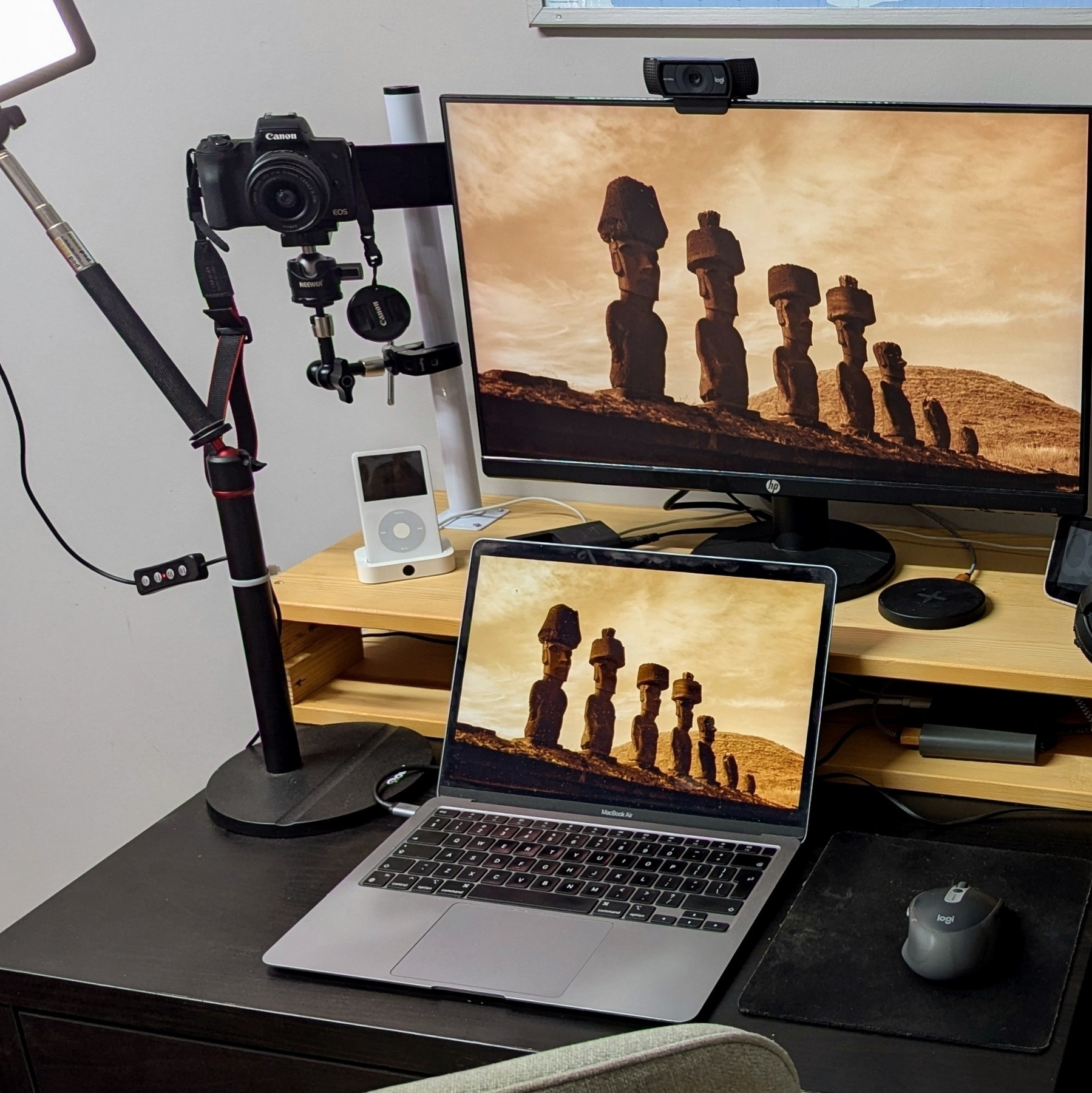
The Multi Properties plugin was a lifesaver for my recent project (you know, that one 😉). It made adding and removing properties from several #Obsidian notes super easy. If you’ve been looking for a way to do that, I just published a video explaining exactly how to use it.
I finished importing all my #Obsidian #Markdown notes (posts) into Micro dot blog. Of course, there were some glitches and some problems I created myself, but overall it was as easy and simple as something like this gets. I took many notes along the way and had many ideas that I intend to share in a longer post and some videos.
One thing I would love to be able to do on #Obsidian would be to click on a file in the files list and then use the up and down arrows on the keyboard to switch from one file to another on the list. 🤔 Hmm, there’s probably a plugin that can do that.
My entire website was created using Obsidian notes, all written in Markdown. I already knew that Micro.blog supports Markdown, but when I started entertaining the idea of moving my site back there, I found out about the Markdown import feature, which uses the Frontmatter (Properties) for the post title, publication date, URL, and even tags.
After a few hours testing the tool with some of my posts, I was ready to start cleaning all of them, so I copied them to a new Vault. The Multi Properties and Global Search and Replace plugins were so useful that I’ll probably publish videos about them.
There are people who see Obsidian as a tool for developers, but when I find and use plugins like the above to perform complex tasks with a click of a mouse, what I see is a powerful tool making anyone’s life much easier.
PS. The website migration process is still in progress.
I know, I know. I just told you about my idea of using Micro.blog as a Social Hub but, to be fair, I also said it was a test. Anyway, I changed my mind. I’m moving my entire site back to Micro.blog 😳.
Okay, there will be a longer post or a video about this, but the TL;DR is:
- The few posts I’ve published since I started this experiment reminded me how much I felt connected to you guys when I was posting all the time on my blog.
- This was the perfect combination of elements to finally switch my site to an EU server and my domain to
.eu.
More on all the above later. For now, have a lovely weekend.
PS.: While I’m in the process of moving all my content from my .com address to this new .eu home, both sites will be active.
There’s no such thing as an uncomplicated subject in the #EU.
New euro banknotes spark Franco-Polish dispute over Marie Curie’s name
They can definitely use a little cleaning, but now that I found the #Pebble straps I have another excuse to finally start fixing the watch.

The more I share my ideas, the more ideas I get. I just made a small improvement to the Tasks system I created on my #Obsidian Home Page. Video coming up soon. Maybe today! 😉
As a Star Trek fan, I had no choice but to immediately click on that YouTube thumbnail: “Official Trailer | Star Trek: Khan.” It was impossible not to!
When I started watching it felt like a game promotion, which was a bit frustrating since I’m not a gamer. But like any true fan, I didn’t give up.
“George Takei? This is definitely a game,” I thought, yet I kept watching. Then came the big reveal: It’s a podcast! 🤯 Wow, I was not expecting that.
I still need to test sharing YouTube videos and articles from my main site, but I’m enjoying the idea of having a Social Hub so far. Especially for sharing short posts like this one. On the other hand, I’ll need to rethink my content organization strategies for my main site because this new “portal” also doubles as a timeline.
As for my videos, I’m starting the tests now 😊. I’ve set them to automatically be posted on my Social Hub, which will in turn send them to Mastodon and Bluesky. So, just a heads-up: some posts might look a little rough around the edges on my Bluesky and Mastodon as I work out the possible glitches.
Have a great week 😉
Do you know those shelving units from #Ikea made of cubes? This one is three cubes high, and I keep it next to my incredibly small home office desk (also from Ikea). The desk itself has already gone through some #IkeaHacks, but I still have many plans for it!
Anyway, it was time to make these boxes more efficient. As you can see in one of the pictures from yesterday, the base of the cube at the top of the stack almost aligns perfectly with my desk. So, the plan is to create a platform that I can pull out and put things on when I’m working at the desk. This is what that sketch I recently shared was all about.
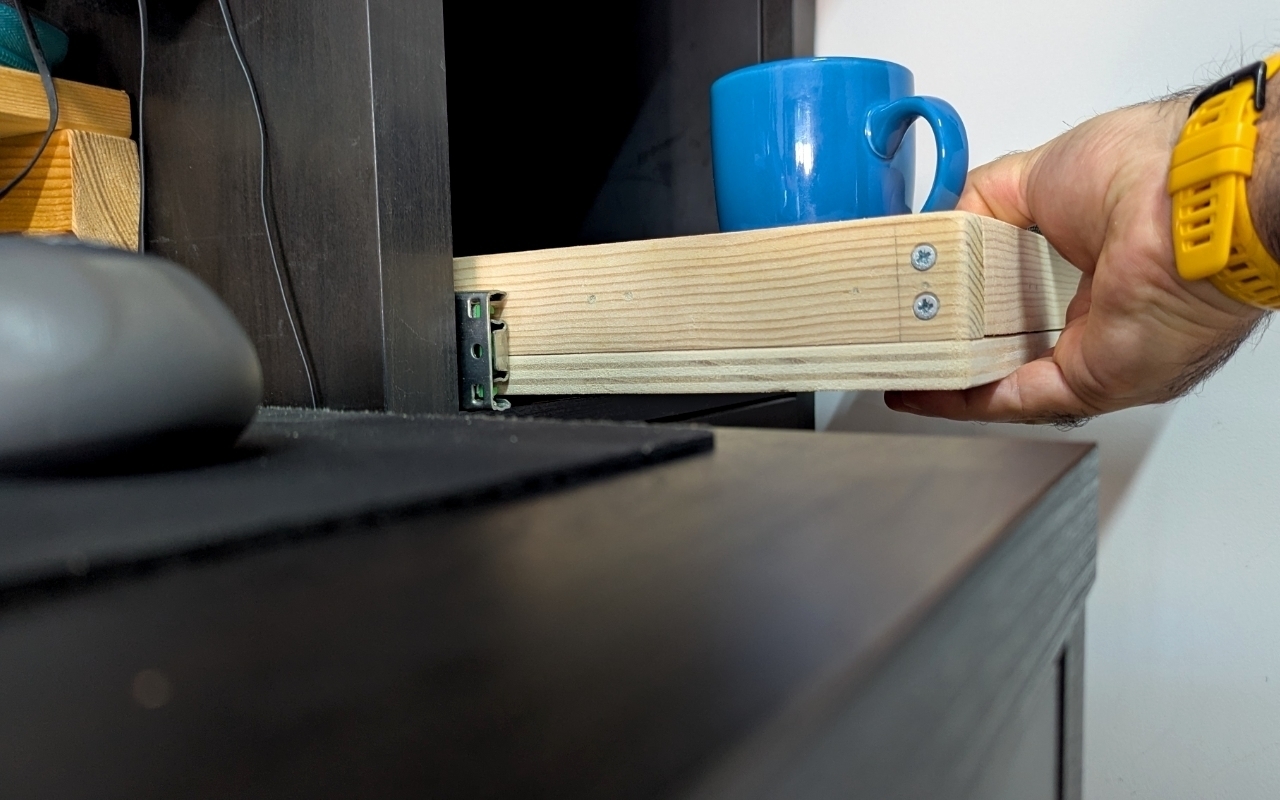
In addition to the platform that will slide out like a drawer, there will also be a shelf. I’m not yet sure if it will slide with the platform or stay inside—that’s for future me to decide! For now, the plan is to finish the platform section.
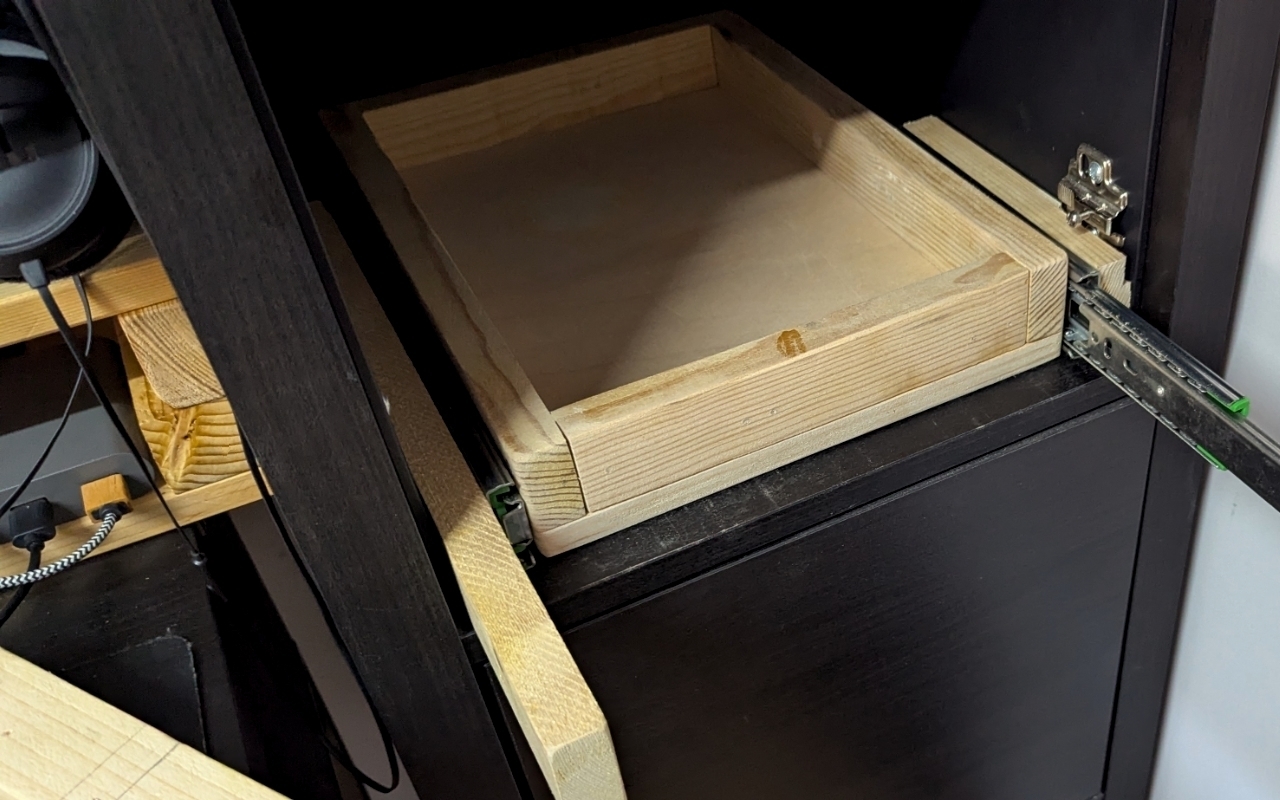
I’m testing a new idea! I’ve set social.vladcampos.com as my Micro.blog domain and configured it to cross-post to Mastodon and Bluesky.
Now, I can use Micro.blog to post links to YouTube videos (from both channels), and to articles I publish on my main site. As for photos, and short updates, I can do it directly on Micro.blog. This automatically does two things: it shares everything on Mastodon and Bluesky, and simultaneously creates an RSS feed with all my published content.
I think this has the potential to work really well, but I need to test it for a few days!
P.S. This post was created using the setup above 😊
I’m trying to visualize a project I’ve been brewing for a long time. It’s a small one, but it demands a few precisely cut pieces of wood, and that’s why I’ve been postponing it for a while. But this coming weekend may be it. Wish me luck with those cuts! 😁 #Maker #Woodworking #Supernote
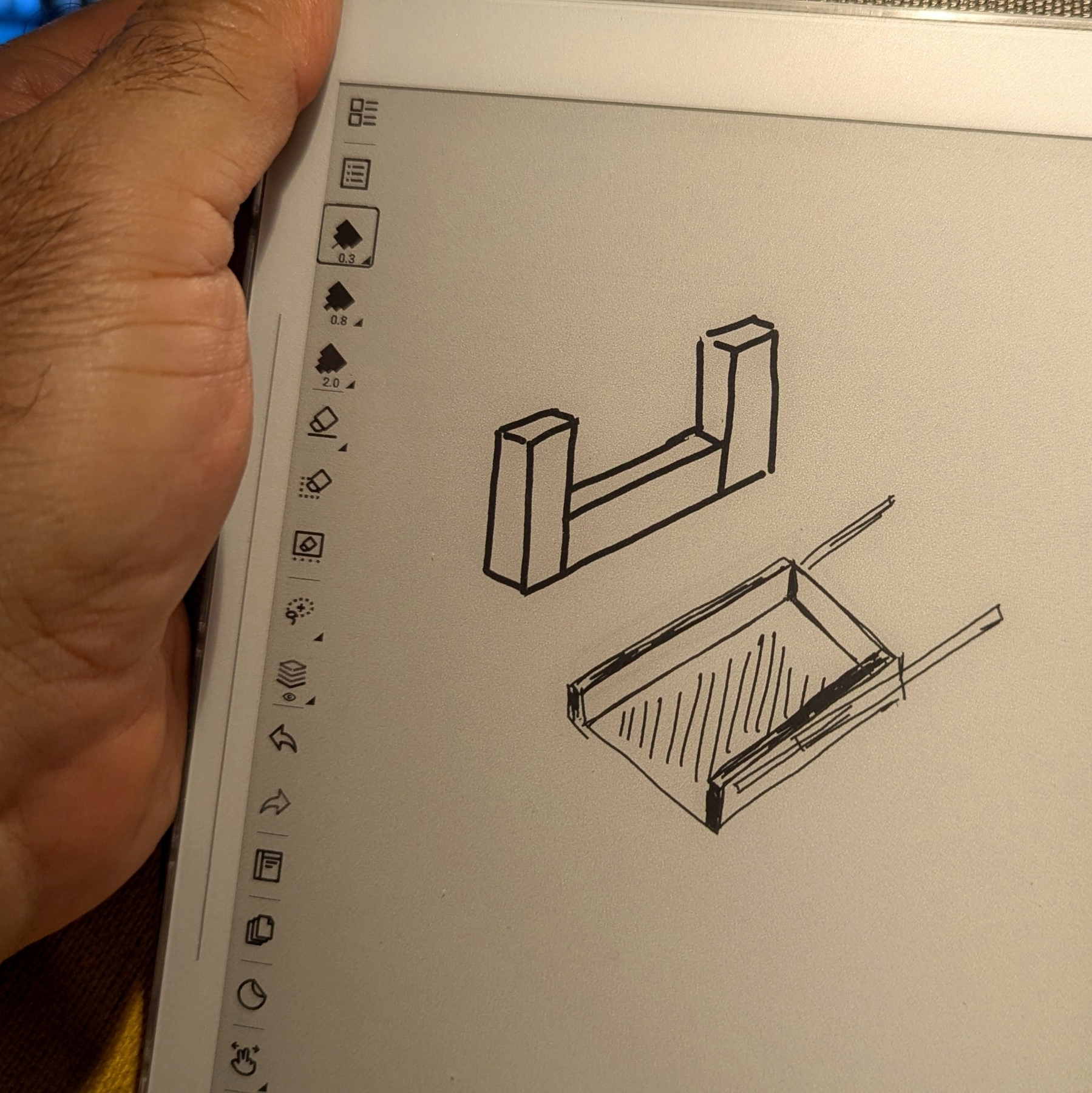
It seems like you don't have to wait four hours like they said in the official Obsidian Forum.
After additional experiments with sharing the Obsidian Publish permalinks on social media, I discovered that if I do so two hours after the page goes live, the image will appear on the social media post. I haven’t had any luck with a one-hour wait, though.
Next, I’ll try one and a half hours 😉
UPDATE: So, it looks like my two-hour theory is a bit hit or miss. I’m adding this update because it took a bit more than two hours for the image on this one to appear.
My Obsidian Publish infinite loop. The saga of creating new problems by solving others.
It’s incredible how solutions can have a side effect, creating new obstacles. And I secretly love dealing with that challenge.
Like usual, I’m sharing something I just learned. But let’s begin with the issue. If you use Obsidian Publish to post your notes, the address of the page will be something resembling the path to the note in your vault, which creates two headaches.
- If you move that note to another folder in your vault, the page address will change if you update it. And the last thing you want is your site pages changing addresses.
- I’m not an SEO specialist, and there is conflicting information about this online, but some say the address format is an important signal. I have no idea whether it’s critical or not, but the address created by Obsidian Publish looks horrible.
The solution to both is adding your own address as a permalink, which Obsidian Publish allows you to do with a property:
permalink: /any-address-you-want
Long story short, all my notes have a permalink, but of course, that created a new problem. Do you know when we publish a link on social media and it creates a miniature with a thumbnail and some details about that post?
Obsidian Publish has some properties that you can use to tell the social media site where to look for that information: cover: or image: for the thumbnail and description: for the description. You can learn all about this on the Obsidian Help site.
That set me on a quest that led me to this Obsidian Forum post: “Pages with permalink take longer to have a social preview.” There’s a long conversation there, but here’s the TL;DR:
- Wait for four hours before sharing the permalink on social media.
- Use the original link instead. That link will always exist, even if you create a permalink. Also, it doesn’t take four hours to show the image.
How to Find the Original Link
Open the Obsidian command palette, and type Publish: open in live site. That will first open the page using the original address and then switch to the permalink.

It’s too fast to see, but if you go to your browser history, you’ll notice that page appearing twice in the list. The older one has the original address. Right-click on it and copy the link.

Yes, I know what you are thinking…
I agree. It’s incredible how there’s always a side effect creating new problems. But don’t worry, you’ll be the first one to know when I find out how using the original address creates new complications.
Returning to a beloved book universe.
The last time I was so deeply involved with a universe, a book universe, was when I was reading my favorite author to this day, Fernando Sabino.
He would repeat sentences, ideas, and situations across all these completely unrelated stories and books, so I always thought he was talking about his life, but with a little touch of fiction. One could say that there was a universe—the author’s life universe—a parallel world with countless things that readers could relate to and understand.
This was many, many years ago. Decades ago. I read several other authors after finishing all his books, but none of them were able to create the same type of connection.
I’m currently on book two of The Expanse series. About 70 percent of that book, and I can’t wait to read book three. By the way, are there six or nine books? Anyway, what I know is there’s an end to the saga, and I’m already sad about that.
What am I supposed to do when I read all the books?
When I asked Gemini Flash if it could do a specific task or if I should use Gemini Pro for that, it told me that there was no need to use Pro for that. Then, it came up with a detailed explanation of why it was perfectly capable of doing that and what kind of tasks I should ask Pro to do. It was hilarious. 😆 I could only picture a worker telling me something like:
“There’s no need to call my boss. I know how to do that.”
Tweaking some Obsidian plugins (weekend housekeeping)
Yesterday, I spent some time adjusting the settings of two Obsidian plugins — Voicenotes and BookFusion. That inevitably got me thinking about how cool it is to have apps and services automatically send information to a centralized space. What’s even cooler is that even if Obsidian ceases to exist tomorrow, all the files will still be organized and available in my computer’s file system.
BookFusion
When making some small adjustments to what I showed in a recent video, I noticed that the plugin isn’t creating “Lists” in my vault. I even went back to my video and realized that this issue was already present back then.
Anyway, if you look at the images below, you can see, by the lighter green link, that the notes “Completed” and “Currently Reading” don’t exist in my Vault. In other words, the plugin isn’t creating them, even though I have all “Index” options set to synchronize.
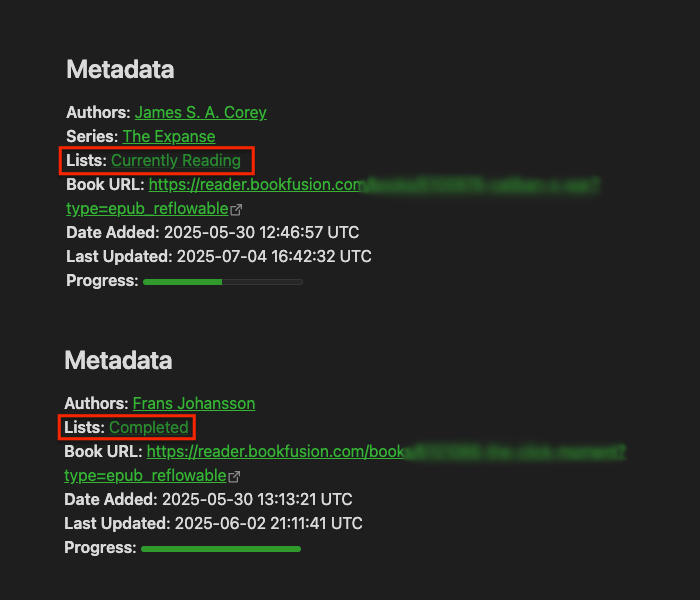
By the way, if you’re having trouble understanding what I’m talking about, please watch the video below.
Looking at the images below from my BookFusion dashboard, you can also see that the book Caliban’s War is in the “Currently Reading” list and the three others are in the “Completed” list.
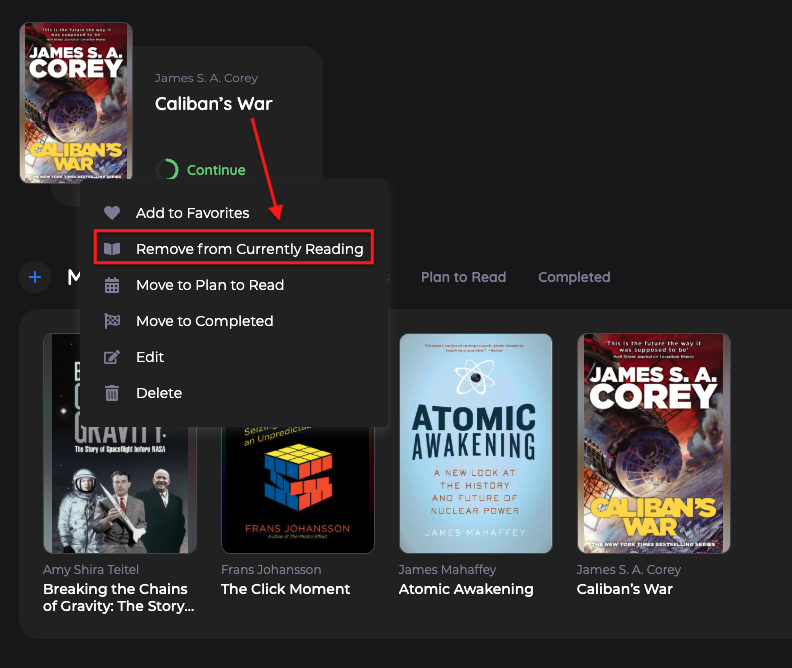
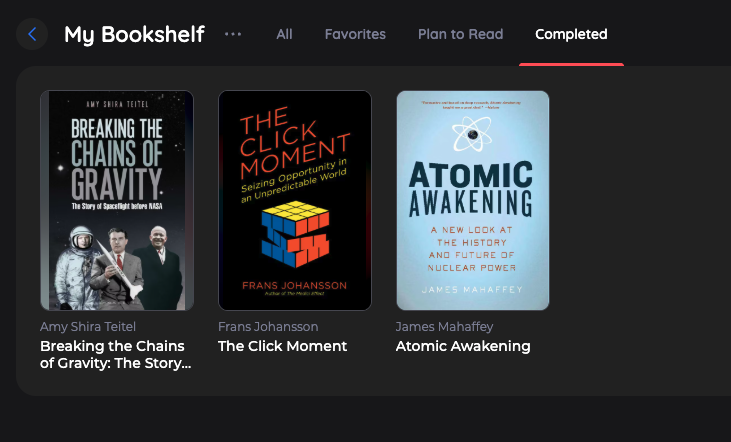
It’s possible I’m doing something wrong, but after checking all settings and not being able to figure out the problem, I decided to email the BookFusion team. I’ll update this post when I hear back from them.
Voicenotes Unofficial Plugin
I’ve been testing the Voicenotes Pages feature to produce a video about it, which is why I decided to also dedicate some time to make adjustments to the plugin settings.
Again, I’m not sure if I’m the one doing something wrong, but it looks like the variable that creates the title for the note is also including the date.
Then, there’s a suggestion. As you know, I like to have all my files in the Files folder in my Timeline, but the plugin doesn’t let us choose where to save Voicenotes attachments. My suggestion was to allow us to do that.
That’s it for this one. I just wanted to share the recent updates because, as you know, I’m always tweaking things around here.